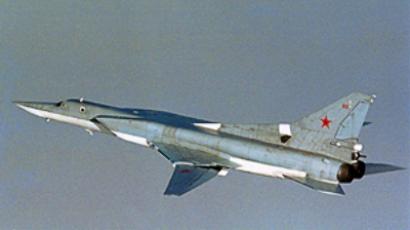S.Ossetia remembers Georgian sneak attack
A minute of silence will be held in South Ossetia on the eve of the anniversary of last year's war. On August 8 last year, as the world’s eyes were turned to the Beijing Olympics, Georgia launched its sneak attack.
In the next few days commemorative events will take place in the afflicted region.
It is known to the world as the Five-Day War, but in fact it lasted for almost two weeks.
With the skirmishes on the border starting in early August and getting more intense each day, South Ossetians knew that something bad was coming.
“Some say that they did not think of it. But I did. We just did not expect such fascism. We thought they might shoot a bit, or blow up a house, kill someone – but not that!” said Evelina Kakoeva, a local resident.
On Thursday, August 7, Leonid Valiev – also a citizen of the South Ossetian capital – had already sent his younger cousins to relatives in Russia while he stayed in Tskhinval, glued to the TV screen. The summer Olympic Games in Beijing were about to begin.
“The Olympics take place once every four years, as you know. We were looking forward to them. Sometimes you just run out of luck. There was tension in the air, people could feel it. I strongly felt that we were in for something bad,” he said.
Meanwhile, frantic measures were under way to avoid the escalation of hostilities. A few days earlier South Ossetian forces had taken hostage four Georgian soldiers. Tbilisi threatened a full-blown invasion, but with the help of Russian peacekeepers the soldiers were released.
A few hours later, the Georgian president went on national television, calling for peace.
“As the commander-in-chief of the Georgian forces, I gave a very painful order that we will not respond even to intensive fire from the South Ossetian side. I demand an immediate ceasefire and confirm our intention to provide South Ossetia with absolute autonomy and offer Russia to be the guarantor of this,” Mikhail Saakashvili said.
Milena Razmadze from Tskhinval recalls what happened later:
“We heard the sound of shooting, but I was inside, deciding whether to get dressed or not. Then there was the sound of the strikes. I put on a dress at once and we ran to the basement.”
It is no longer disputed that the Georgian invasion was well-planned. By early August, Tbilisi had amassed a number of troops and military hardware along the border. Meanwhile, South Ossetia called on its men to defend their land.
Madina Gubieva's husband joined the paramilitary forces. August 4 was the last time she saw him.
“He did not like either hugs or kisses. When he said goodbye, I sent my son to his room, so that he would not cry,” she said. “But my daughter was only five months old, and I was holding her when I followed him out. When he was about to get into the car, he looked back, came up to kiss me, then got into the car and waved. That was our last meeting.”
He was killed by a mortar in his own backyard. His wife, widowed at 25. His daughter – orphaned and too young to remember him.
South Ossetians saw the war coming, but were caught unawares when it pounded at their doors. On the eve of the Olympic Games in the middle of the night, amid security assurances and calls for peace, the Georgian army began its ultimately failed invasion of South Ossetia.













